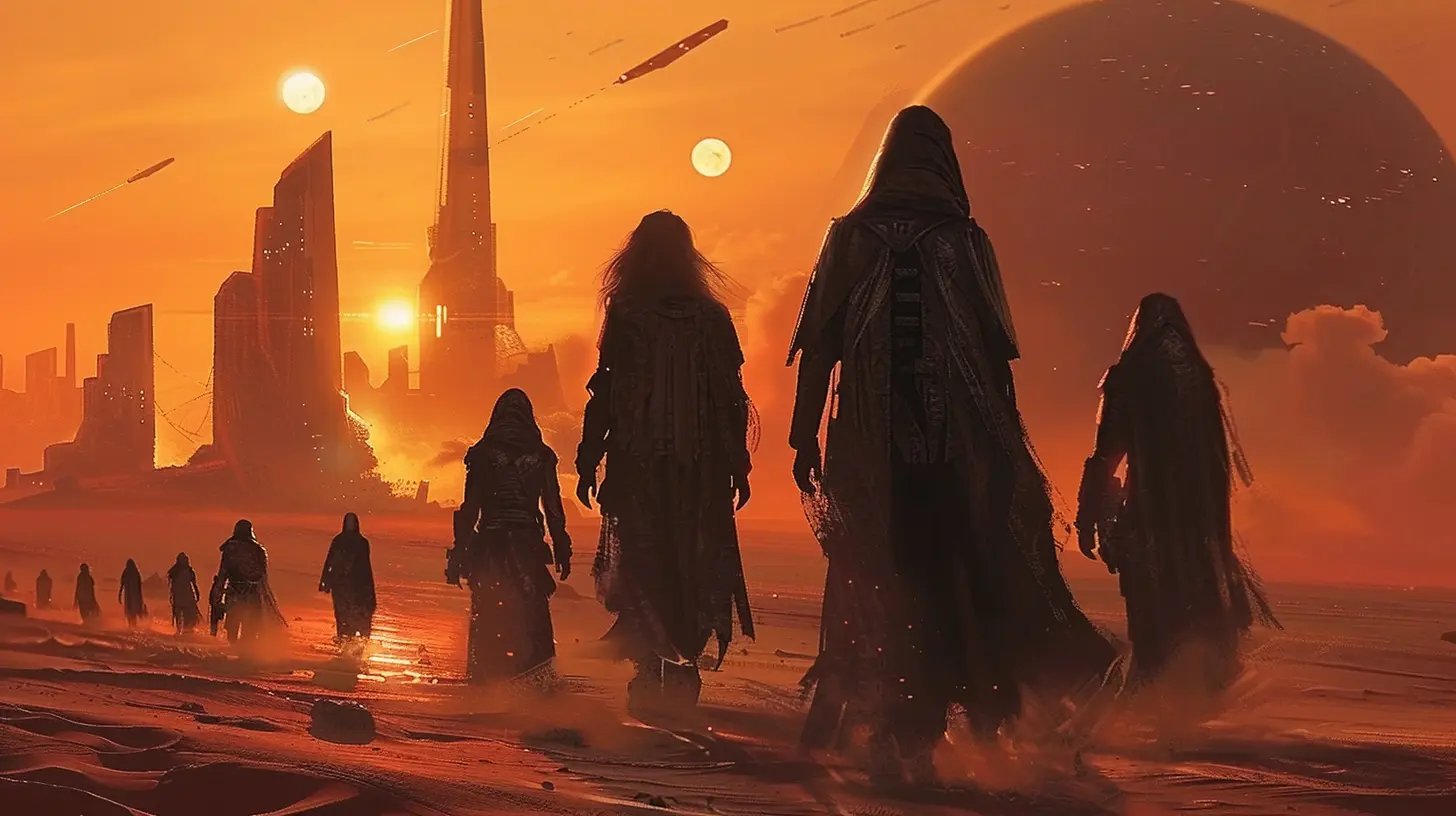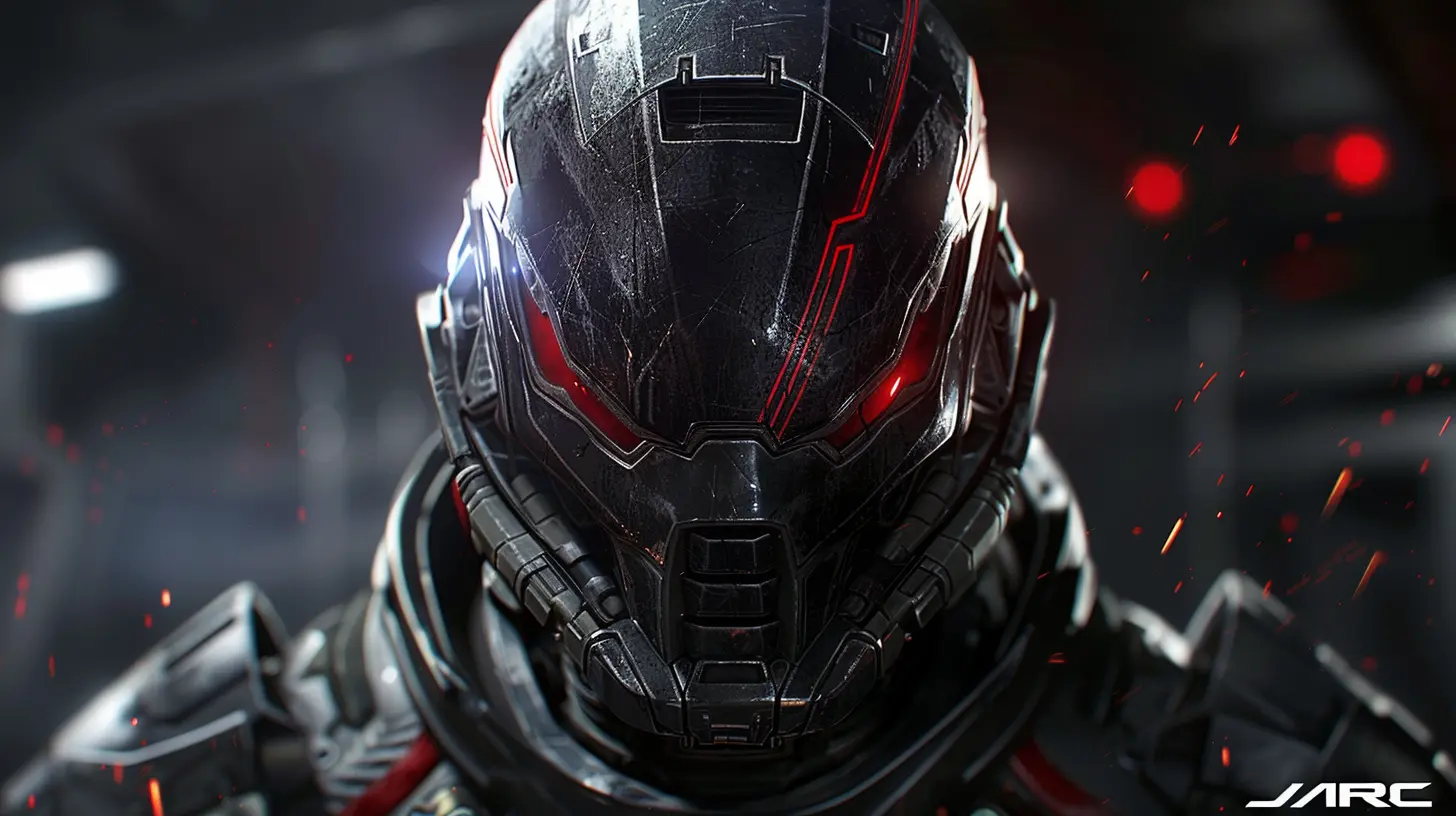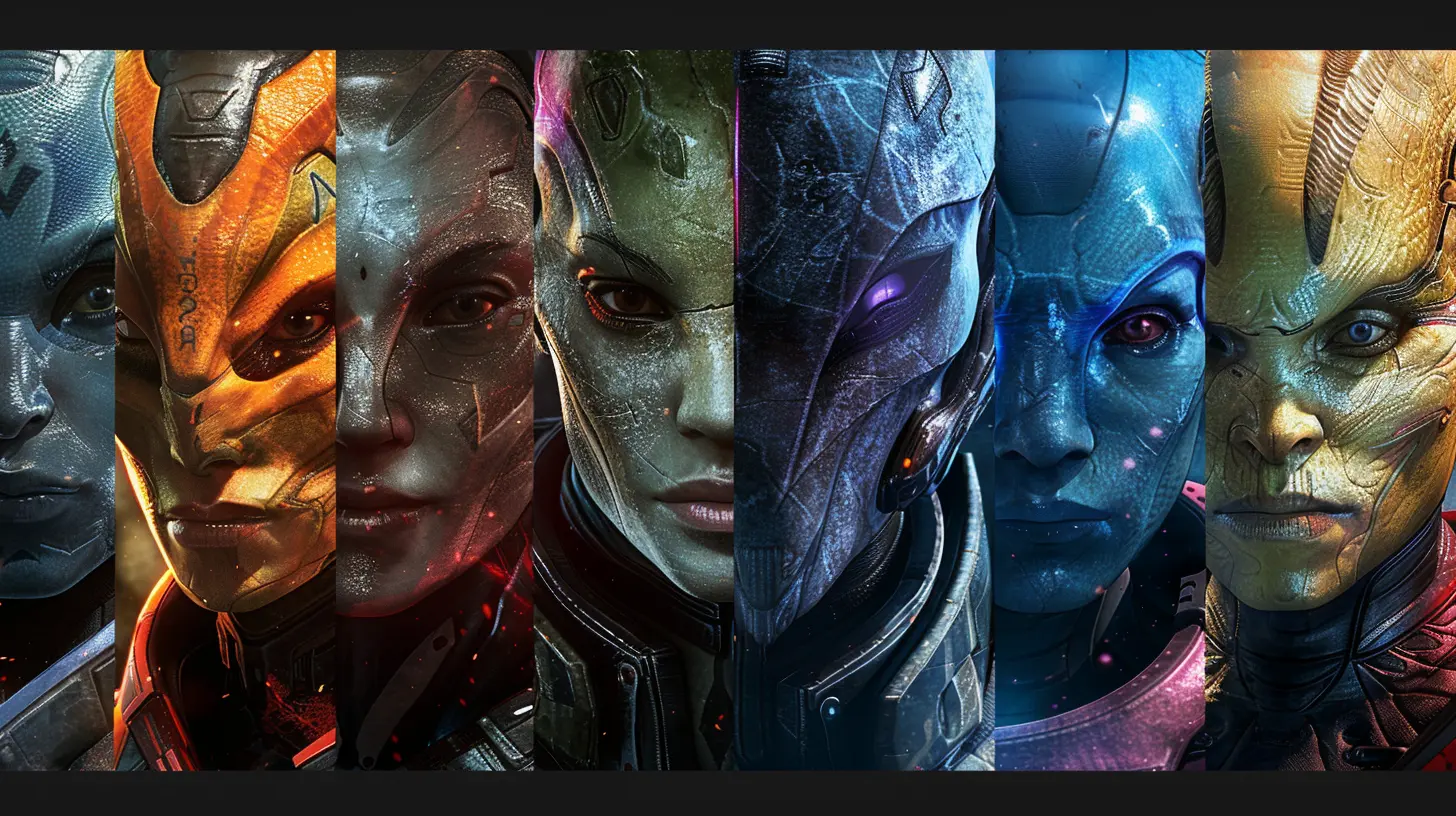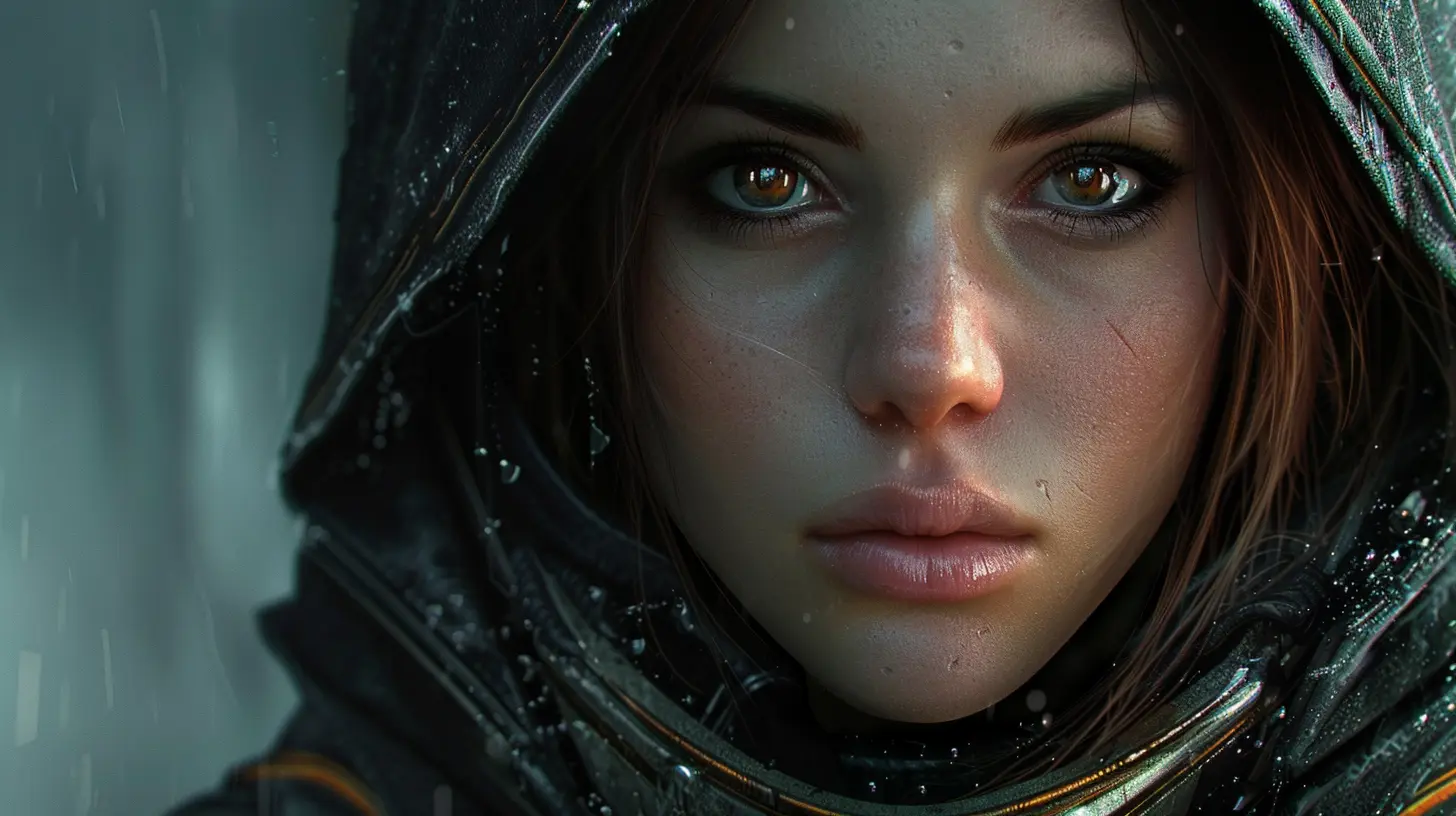Mass Effect’s Reapers: Breaking Down the Galaxy’s Ancient Threat
14 June 2025
Let’s take a moment to appreciate just how massive the Mass Effect universe is. It’s got epic battles, unforgettable characters, and enough emotional rollercoasters to leave anyone in awe. But one thing stands tall above it all: the Reapers. These towering, ancient, synthetic beings are the franchise's most iconic villains. They’re not just another enemy you can blast into oblivion; they’re a chilling symbol of power, inevitability, and fear. If you've ever wondered why the Reapers are so unforgettable or how they became the ultimate threat to the galaxy, buckle up—because we’re diving deep.
A Galactic Nightmare: Who—or What—Are the Reapers?
Imagine this: every 50,000 years, an unstoppable force sweeps across the galaxy like clockwork, wiping out advanced civilizations as if they were nothing. That’s the Reapers in a nutshell.They’re ancient synthetic-organic hybrids—creatures so advanced that calling them “machines” feels like an insult. Each Reaper is a vast, sentient spaceship, capable of unleashing destruction on a scale that’s borderline incomprehensible. Oh, and they’re all part of a collective intelligence. So, it’s not like you’re dealing with just one villain; it’s basically fighting a hive mind that’s been fine-tuned over millions of years.
But here's the kicker—they don’t annihilate civilizations out of pure malevolence. They claim to be following a purpose, a cycle that preserves the universe… in their own twisted way. Creepy, right?
The Cycle of Extinction: A Plan Millions of Years in the Making
Here’s where things really get wild. The Reapers don’t just kill off entire species for fun. Their actions are part of what’s known as "The Cycle." Think of it like a galactic reset button. Every 50,000 years, once civilizations reach a certain level of technological advancement, the Reapers swoop in and systematically wipe them out. Why? According to them, it’s to prevent synthetics (machines) from overrunning organics (living beings). Yeah, they’re basically saying, “We’re killing you to save you.”You know what this feels like? It’s like your smoke alarm stopping a fire by flooding your entire house. Sure, the fire's out, but was that really necessary?
This process ensures that no civilization gets cocky enough to create AI programs that could go rogue and destroy everything. Sound familiar? It’s a dark twist on humanity’s own fears about artificial intelligence. The Reapers see themselves as a safeguard—a terrifying insurance policy for the survival of the galaxy.
Harbinger and Friends: The Face(s) of the Threat
While the Reapers as a whole are a collective force, there are a few that stand out. Harbinger, for example, is the leader—or at least the spokesperson—of the Reaper armada. If you’ve played the Mass Effect trilogy, you’ve probably heard his deep, booming voice giving you chills as he taunts Commander Shepard.Harbinger represents everything the Reapers are about: cold, calculated, and entirely unrelenting. He’s not just there to destroy you; he wants to break your spirit along the way. And let’s be real—he’s really good at it.
Then there’s Sovereign, the first Reaper players encounter in the series. Sovereign sets the tone for the entire conflict. It’s not just a ship; it’s a godlike entity that sees you as less significant than an ant. It doesn’t negotiate. It doesn’t empathize. It just… is. And that’s what makes them so terrifying.
Playing Puppet Master: Indoctrination and Control
One of the Reapers’ most sinister weapons isn't their planet-destroying lasers or their massive size—it’s their ability to manipulate others. Enter indoctrination.The Reapers can subtly influence the minds of organic beings over time. Whether it’s through whispers in your head or more direct control, this process eventually turns loyal people into puppets, doing the Reapers’ bidding without question. It’s like brainwashing, but way more invasive. Imagine realizing that your thoughts aren’t even your own anymore. Chilling, right?
This is how the Reapers gain allies across the galaxy. They don’t always need to destroy you outright; sometimes they just make you destroy yourself. Leaders, scientists, soldiers—no one is safe from their influence. And that’s what makes indoctrination such a powerful tool: it undermines trust and sows chaos before the Reapers even arrive.
The Catalyst and the Endgame
No discussion about the Reapers would be complete without talking about the Catalyst. This ancient AI is the mind behind everything—the architect of the Cycle. In the final act of the trilogy, the Catalyst reveals its reasoning for the Reapers’ actions. And let’s just say, it’s a lot to unpack.Long story short, the Catalyst believes that organics and synthetics are destined for conflict. To avoid that catastrophic war, the Reapers preserve order by culling advanced civilizations and turning them into… well, more Reapers. Yeah, the Reapers themselves are made from the harvested DNA and technology of past civilizations. It’s a brutal, ironic cycle of “preservation.”
When you finally meet the Catalyst, it offers you a choice: control the Reapers, destroy them, or merge organics and synthetics into a new form of existence. None of these solutions feel entirely satisfying, but hey, that's life in Mass Effect—big problems rarely have clean answers.
Why the Reapers Are the Perfect Villain
What makes the Reapers such compelling villains? It’s not just their overwhelming power or their eerie design—it’s what they represent. The Reapers tap into a deeply primal fear of the unknown. They’re an ancient, cosmic force that sees us as insignificant. They challenge our understanding of free will, survival, and progress.In a way, they’re like a galactic boogeyman. But instead of waiting in your closet, they’re lurking in the dark beyond the stars, waiting for their timer to go off. Their motivations are complex, their actions are horrifying, and their presence lingers over the entire franchise like an ominous shadow. The best villains aren’t just obstacles—they force us to question ourselves. And the Reapers? They’re a mirror held up to humanity's own fears about technology, advancement, and ambition.
Lessons From the Reapers: What We Can Take Away
Now, I know we’re talking about a fictional game universe here, but hear me out. The Reapers’ story isn’t just about battling cool aliens or saving the galaxy. It’s a cautionary tale.It raises questions about balance—between technology and ethics, power and responsibility, survival and sacrifice. It challenges us to think about how far we’re willing to go in the name of progress. And yeah, maybe it’s a subtle reminder to keep an eye on that smart fridge of yours before it starts plotting against you.
The Reapers also teach us that sometimes the greatest threats aren’t the ones we see coming. The galaxy’s civilizations grew confident, thinking they were the pinnacle of existence. But the Reapers? They were always there, waiting patiently. It’s a humbling reminder to never underestimate the unknown.
Wrapping Up the Reaper Threat
Love them or loathe them, the Reapers are unforgettable. From their eerie designs to their philosophical justifications, they’re more than just villains—they’re a force of nature. They challenge your resolve, question your morals, and make you think long after the credits roll.And that’s the beauty of the Mass Effect series. It doesn’t just give us enemies to defeat; it gives us existential crises wrapped in shiny, sci-fi packaging. So, the next time you fire up your Normandy and take on the galaxy’s ancient threat, remember: the Reapers aren’t just an enemy—they’re a warning.
all images in this post were generated using AI tools
Category:
Lore And StorylinesAuthor:

Stephanie Abbott
Discussion
rate this article
3 comments
Jacob Shaffer
Ah, the Reapers: cosmic villains with a flair for the dramatic! Who knew galaxy-destroying machines could have such commitment issues? They just can't seem to take a break... or a vacation! It's like they missed the 'No invading planets' memo!
June 16, 2025 at 4:59 PM

Stephanie Abbott
Absolutely! The Reapers certainly bring a unique blend of menace and melodrama to the galaxy. Their relentless pursuit of harvesting life highlights their dramatic nature and commitment issues—truly a cosmic paradox!
Sierra McCracken
Mass Effect's Reapers embody a profound existential threat to the galaxy, symbolizing the cycle of destruction and rebirth. Their advanced technology and relentless efficiency raise questions about free will and survival, making them a compelling antagonist that challenges players’ notions of morality and choice.
June 15, 2025 at 3:30 PM

Stephanie Abbott
Absolutely! The Reapers serve as a powerful metaphor for existential challenges, pushing players to confront profound questions about free will, morality, and the cyclical nature of existence in the Mass Effect universe.
Trinity Shaffer
The Reapers embody not just a physical threat, but a philosophical dilemma about cyclical destruction and rebirth. Their existence prompts us to question our own society's choices: Are we architects of progress or harbingers of our undoing? In exploring this, Mass Effect challenges players to confront the consequences of complacency in the face of darkness.
June 15, 2025 at 3:54 AM

Stephanie Abbott
Absolutely! The Reapers symbolize the tension between creation and destruction, compelling us to reflect on our own societal choices and the potential consequences of inaction. Mass Effect brilliantly invites players to engage with these profound dilemmas.



